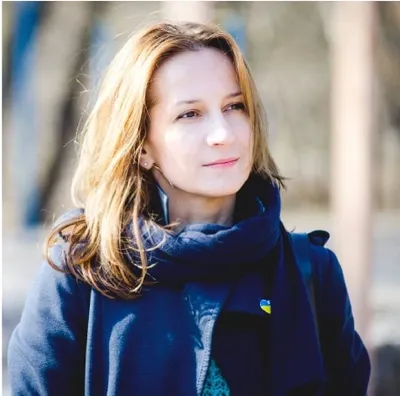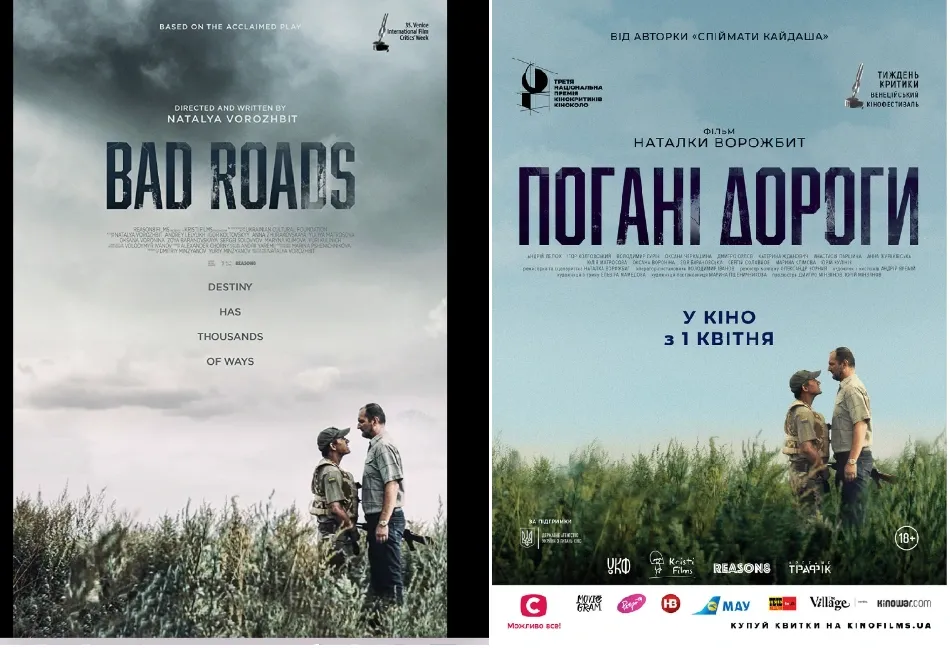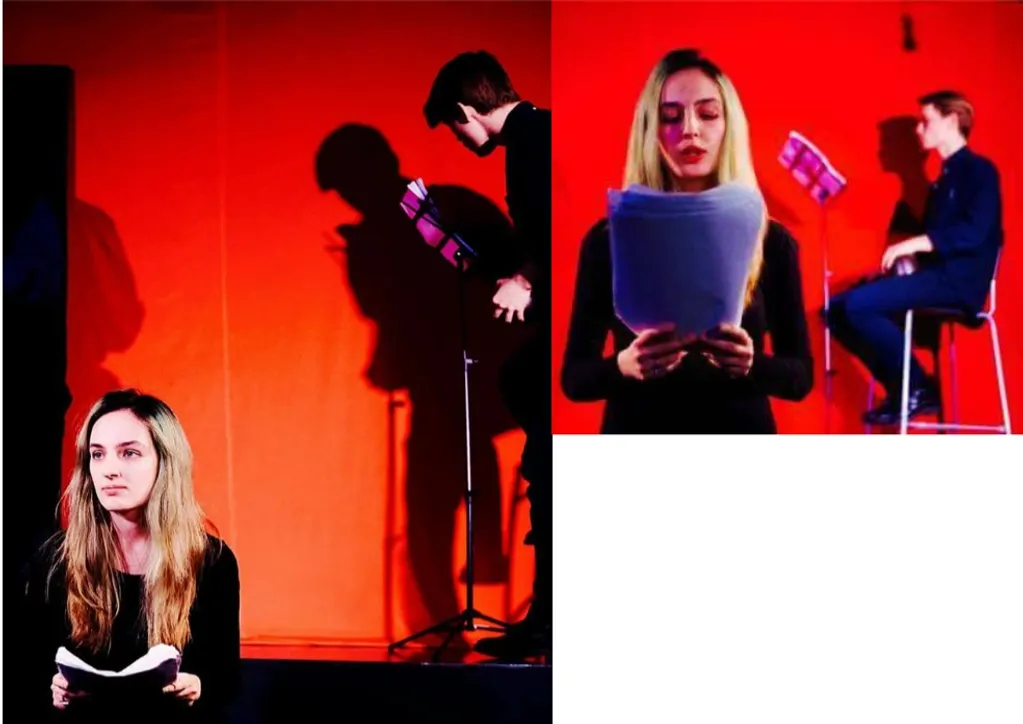Transnational Docudrama
Digital technology represents that which is 3-D. Performance is 3-D. This digital archive exhibits how experiments in mimetic strategies between audience and performer, including a universal break from mimetic acting in order to bring the story of the play closer to the audience, the use of montage in script-writing, the aesthetics of sound in production, and the artistic arrangement of recorded documents in performances in Belarus, Ukraine, Russia, invite the viewer to critique the social matter at hand.
Video of Eye Witness Theatre: Pussy Riot Trial / Свидетельскийтеатр “ОсуденадPussy Riot,” directed by Varvara Faer.
Video of Bolotnaia Square Case / Bolotnoe delo, directed by Elena Gremina and written by Polina Borodina
Ukraine

In Ukraine the Theatre of Displaced People gained a notable following around January of 2015, after Euro Maidan protests in Kyiv. The Theatre of Displaced People focuses on plays and social initiatives for democracy in Kyiv and other regions in Ukraine, mostly in Eastern Ukraine. There is yet to be one single platform that hosts translations of politically-engaged Ukrainian dramas and notable recent performances of them. This section of the digital archive here will be expanding over the next few years, dependent on funding, to become such a site.
Ukraine’s long road to independence started from a homegrown national independence movement in Kyiv in the late 1980s to the Maidan protests. Artists such as the documentary film director Sergei Loznitsa and playwright Natal’ia Vorozhbyt have taken us to places and moments in Ukraine’s fight for independence that have made history, such as Maidan and Donbas.
Vorozhbyt, a prolific writer of docudramas, is the co-director and co-founder of Theatre of Displaced People, and she has written such anti-war plays as Children and Soldiers and Where is the East? (2016 and 2015, both by Vorozhbyt and Georg Genoux) as well as Bad Roads (2017, Vorozhbyt). The latter was made into a film. Additionally, Vorozhbyt’s iconic fictional play (that is based on real life circumstances), Galka Motalko, describes challenges that youth have confronted navigating the post-socialist environment in the region, and it has been instrumental in the Russian New Drama movement. Vorozhbyt has regularly attended Liubimovka.
After Liubimovka made an anti-war statement, it was canceled in Russia. Its annual meetings have happened since then in East Europe and Central Asia. An off-shoot of Liubimovka, called Eсho of Lubimovka: Independent, Anti-War Playwriting, started in Berlin in 2023: https://lubimovka.art/
Bad Roads (Погані Дороги, 2020)

Written first as a drama by Natal’ia Vorozhbyt before she directed it as a film. A Kristi Films, 2021.
Many in Ukraine, and in Russia, feel there has been a war in Ukraine since Russia’s 2014 annexation of Crimea and the Maidan protests. This drama, and its film adaptation, depict the Donbas region c. 2020.
Take the Rubbish Out, Sasha
Russia
This platform places Russian documentary drama within the broader context of theatre for social change in Belarus and Ukraine. The main research question of this digital project is to what extent has Russian docudrama been a humanitarian project since its inception in the early 2000s. Along the way, we show that theatre and performance art are the best genres for helping people understand social problems in the region.
For the creation of a documentary drama, the playwright—who is often also the actor—selects the site of a particular subculture to study, enters its habitus and conducts interviews with people of that subculture. Docudrama, as a dramatic style, originated in the United Kingdom in the work of Alecky Blythe and is associated widely with Eve Endler’s Vagina Monologues (US). Docudrama spread to Russian theatre after playwrights and directors from the Royal Court Theatre in London in 1999 went to Moscow to teach the method. The playwrights Mikhail Durnenkov, Ivan Vyrypaev, Elena Gremina and Mikhail Ugarov attended the first seminars. By now documentary drama is a transnational movement used notably in Belarus, at Belarus Free Theatre, where Russian is the most commonly used language, and in Ukraine, at Theatre of Displaced People, where the use of Russian was relatively unproblematic until the occupation of Crimea and the civil discord within Ukraine rendered it a contentious issue.
It is precisely in the theatre, with its inherent form of critique and reflection
provided by the structure of the stage, where the contemporary moment of the present can be held at arm’s length away, which creates enough of a distance from the present for a historical perspective to emerge. Since 2002, docudramatists in Russia, and particularly at Teatr.doc, a theatre considered the flagship of Russian docudrama, has defied legislation banning the use of obscenity on stage; it examines social issues such as homosexuality; it transgresses socially conservative boundaries relating to religion
and blasphemy; it explores crime, youth disaffection and violence in post-Soviet societies; it has explored taboo scandals of political corruption and police brutality; and it has resisted attempts to impose monologic narratives about socio-historical issues.
Moreover, the goal of documentary theatre in Russia is to transform the
audience’s outlook, which often is attached to popular stereotypes. Docudrama provokes in them an agitation toward the unordinary texts placed before them and their embodied form. The public is in the middle of an experiment (“Цель документального театра — трансформировать взгляд зрителя, часто пребывающего во власти тех или иных стереотипов, вызвав в нем смятение от столкновения с необычными текстами и их воплощением. Публика находится в центре эксперимента.” («О драме в современном театре: Вербатим» A Verbatim Manifesto, edited by Ilmira Boliatin. Available in this digital archive).
Novaia Antigone

Novaia Antigone responds to police’s violent response to protests in 2016 by women who lost their children in the Beslan Tragedy in 2004. The women blamed Putin’s government for injustice. In response, police arrested several of the mothers.
Uzbek (2013, Talgat Batalov and Ekaterina Bondarenko)
Opening Scene
Hello everyone. My name is Talgat Batalov, and today I’m going to tell you why I’m not Uzbek. In general, a very strange history surrounds my country. When I lived in Uzbekistan I was considered to be Russian, because everyone was considered Russian there: Jews, Georgians, Tatars, Turks, and even Koreans were considered Russian. Everyone who speaks Russian was considered to be Russian. When I arrived in Moscow, I was called Uzbek. That is, if you say, ‘I’m from Uzbekistan,’ then they say, ‘that means you’re Uzbek.’ You say, ‘No, I’m not Uzbek.’ And they say, ‘Why? It’s Uzbekistan, and there, they are all Uzbek.’ You think: ‘OK, now I’m going to explain what a multicultural city is, where 160 different nationalities live.’ Then you think, ‘Damn, that’s going to take a long time to explain.’ And you say, ‘OK guys, yes, I’m Uzbek.’ But in fact, I’m a typical, banal Tartar. It’s written in my green passport. See, the whole thing is green. Any respectable citizen of Uzbekistan will always say, ‘My green passport.’ And when he receives Russian citizenship, he always says, ‘I got a red passport.’ And in this passport here is written my nationality: Tartar. You can pass it around.
Closing Scene
[Talgat Batalov reads from the article “Russia: a Question about Nationality”].
‘Let’s speak directly. Today the many costs connected to mass migration – outside and inside Russia—are seriously worrying and annoying citizens. I feel that our position should be
clearly stated. First of all, it’s obvious that it’s time to improve the quality of governmental migration politics. And we will be able to do this. And in this plan it’s imperative to strengthen
the disparate political functions and migration services.
It’s important to us that migrants be able to adapt to society. Yes, their desire to live and work in Russia proves their readiness to adapt to our culture and language. Starting next year there should be put into effect a Russian language, literature, and history test to determine whether migrant status should be received or prolonged.
Our government, like different civilized countries, is ready to formulate and prevent appropriate educational programs for the migrants. We understand that people do not run away
from a good life to cross through the nine circles in order to become a victim of uncivilized
conditions.
From this perspective, the assignment that we give to our country and the assignment of Eurasian integration are critical instruments in organizing migrant flows into a normal course.
In essence we want to, on the one hand, direct migrants to the area where they will cause social action. On the other hand – and this is the most ambitious project—we want people to feel
comfortable in their native lands. People just need to be given the chance to work and live normally at home, in their homeland. This is a chance that many people do not have.
For centuries we’ve lived together. Together we conquered the most horrific war. We’re going to continue to live together. And to those who want to separate us: I can only say one
thing. Don’t even wait.’
As always, this ended with a storm. Someone is trying to separate us. The next document is a request for registration from the Savvatevo countryside.
Belarus
Belarus can be considered the most “Soviet” of former Soviet Republics and states, including Russia. State-sponsored propaganda campaigns under President Lukashenko’s publicized social mandates have aimed to hide poverty, drug addiction, crime, and human rights abuses rather than address these social problems. Since speaking out about such problems is prohibited there, Belarus Free Theatre’s rehearsals and performances belong to a type of underground counter-cultural existence such as that of forbidden rock and roll and dissident guitar poetry during Stagnation of the Soviet Union. The production Burning Doors (2016), directed by Nikolai Khalezin of the Belarus Free Theatre, focuses on repressive Russian prisons and the stories of three artists imprisoned for having expressed their beliefs in public: Maria Alyokhina from Pussy Riot, Oleg Sentsov, a Ukrainian film-maker from Crimea who was arrested in 2015 and sentenced to twenty years in prison for his protests (some of which involved an extreme hunger strike) against a pro-Kremlin government and against the Russian annexation of the peninsula in 2014, and also Petr Pavlensky, who was imprisoned after a performance supporting the Maidan movement in Ukraine. The title of the Belarus Free Theatre performance is a reference to one of Pavlensky’s performances, which involved setting fire to the door of the Lubianka, the secret police’s headquarters in Moscow
Pictured on the left side: Belarus Free Theatre founder and artistic director, Nikolai Khalezin, J.A.E. Curtis, Playwriting without Borders: Russian New Drama Conference, Oxford University, April 2017.
Minsk 2011
Minsk, 2011: A Reply to Kathy Acker was a response to protests in Belarus and Russia in 2011. The artistic directors Khalezin and Natalia Kaliada of Belarus Free Theatre live in exile in London. They have residency status in the UK and work at several London-based theatres. Through online technology they can direct rehearsals in Belarus.
